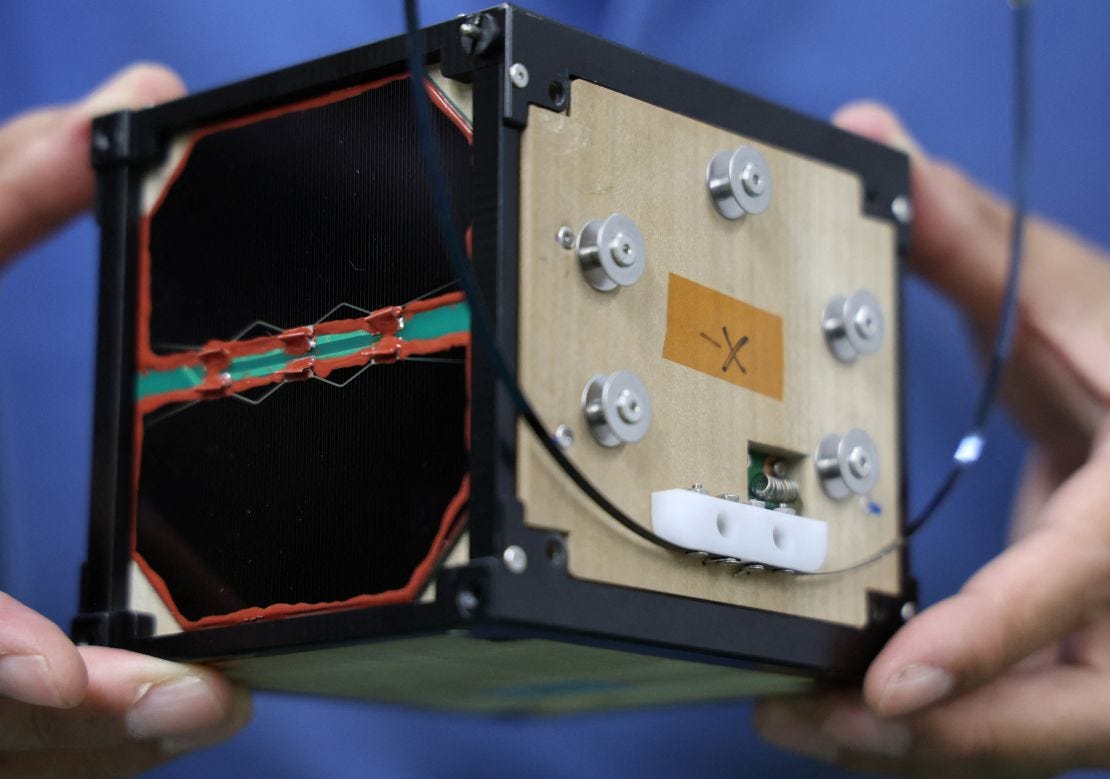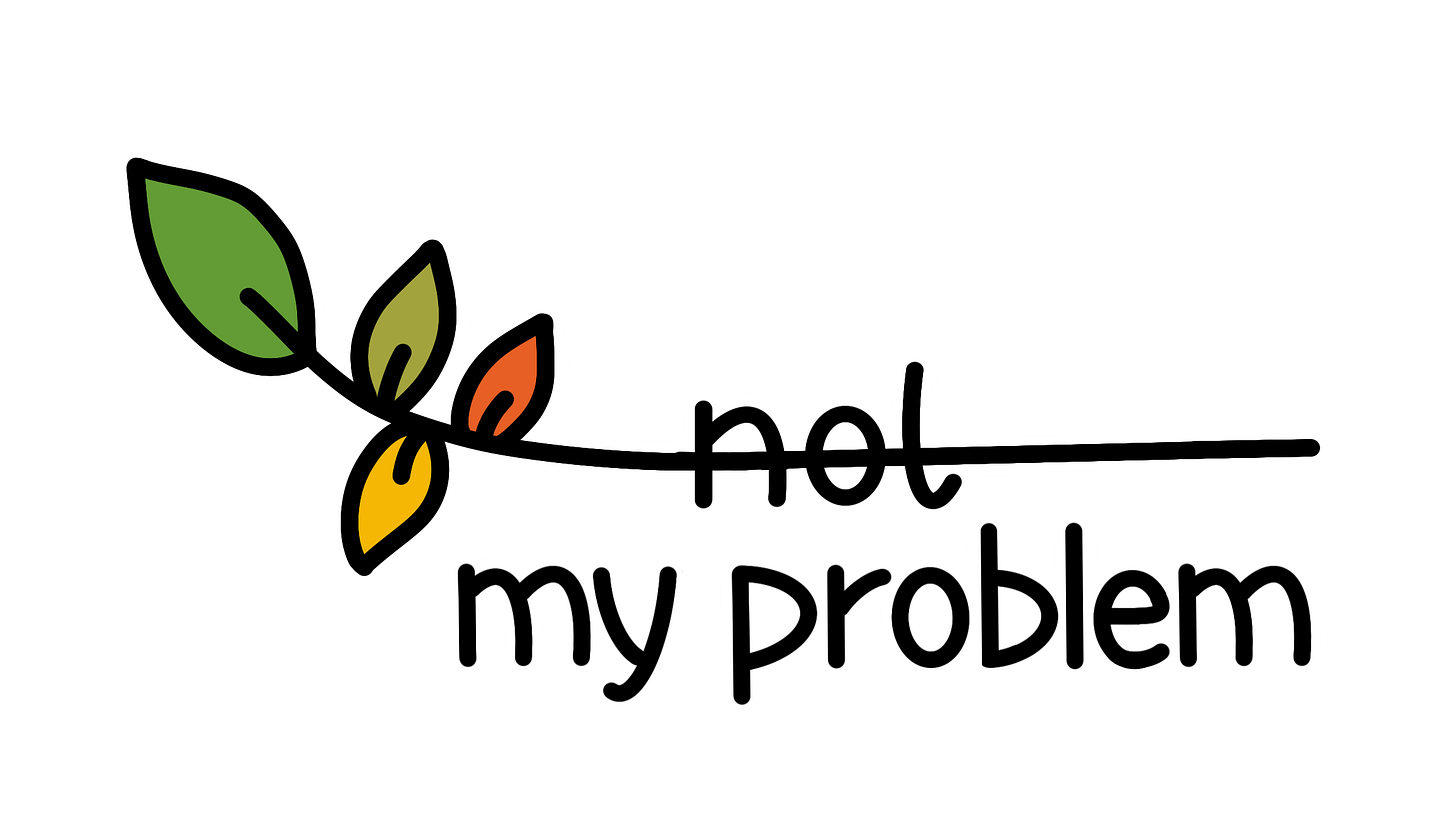World's First Wooden Satellite Launches into Space
But Why Wood?
Today’s eco snapshot👇🏽
World's First Wooden Satellite Launches into Space
Startup of The Week: Tingit
5 Sustainable Brands I Recently Discovered
News That Lifted My Spirits This Week
3 Ways I Can Support Your Sustainability Journey
🛰️ World's First Wooden Satellite Launches into Space
In a groundbreaking move, Japanese scientists have launched the world's first wooden satellite, LignoSat, into space. This palm-sized marvel, developed by Kyoto University and Sumitomo Forestry, is set to orbit Earth at about 400 km above the surface.
Why wood, you ask? It's not just about being quirky. The researchers believe wooden satellites could offer significant sustainability advantages over traditional aluminum ones. When satellites re-enter Earth's atmosphere, burning aluminum can damage the ozone layer. Wood, on the other hand, is expected to burn up more innocuously and is less emissions-intensive to produce.

But the ambitions don't stop at satellites. The team, led by astronaut Takao Doi, has a 50-year plan to use timber for building houses on the Moon and Mars. They're using a specific type of wood called honoki, a Japanese magnolia traditionally used for sword sheaths, which they found suitable for spacecraft after extensive testing.
LignoSat will orbit for six months, enduring extreme temperature fluctuations to prove wood's durability in space.
The project could have far-reaching implications, from space exploration to earthbound applications like data center construction.
As LignoSat takes root in orbit, it looks like space exploration might just be barking up the right tree.
⌛ Time for the quiz of the week
Answer at the end of the newsletter. No one (including me) can see your response so feel free to vote 😉
✨ Startup of the week: Tingit
Shop Not, Save Lot…The most sustainable way to shop for clothes is to not shop at all. Even if you shop from sustainable brands, the clothes would still need water, energy, and other raw materials to be manufactured. They would consume energy during various stages in the production process. All of this would lead to more emissions. Of course, these emissions would be less than that of fast fashion brands, but they are still emissions. And at this stage, we can’t afford any more emissions.
Mend over Matter…A sustainable alternative to that is extending the life of what you already have, be it shoes or clothes. But getting something repaired is not as convenient as dumping something and buying a new product in a few clicks. That’s where Lithuanian startup Tingit comes in.
It helps consumers restore their used clothing to its former glory with its repairs marketplace. This is how it works 👇🏽
Mend-ing Trends…This play on words combines "mending" (repairing clothes) with "trending" (popular fashion), highlighting Tingit's focus on repairing and upcycling fashion items. It's catchy and encapsulates the idea of making clothing repair a trendy and sustainable practice.
✅ 5 Sustainable Brands I Recently Discovered
Hubcycle: Transforming one factory’s waste stream into another factory’s raw material.
Sproud: Manufacturing plant-based milk from yellow split peas.
Werewool: Taking inspiration from nature to make plastic-free clothes.
Brisil: Using rice husk ash to make tires, toothpaste, and footwear.
Rescript: Manufacturing recycled paper so that you can print guilt-free.
😹 News That Lifted My Spirits This Week
Scientists at the University of Waterloo have made a groundbreaking discovery in plastic recycling using 3D imaging technology. This innovative approach allows researchers to study how microplastics degrade at a microscopic level, potentially revolutionizing recycling methods. The enhanced depth and detail of 3D imaging could lead to more efficient and sustainable ways to tackle the global plastic waste problem.
Paxos Solar has introduced innovative solar roof tiles that can power heat pumps, potentially revolutionizing home energy systems. These glass-glass tiles are designed to generate both electricity and heat, with just 10 square feet producing up to 190 watts of power. This breakthrough could significantly change how homes are powered and heated globally.
German scientists have cooked up a groundbreaking method to produce food without using land. They've created a two-stage bioreactor that uses microbes to convert carbon dioxide, hydrogen, and oxygen into proteins and vitamins. This process, similar to beer fermentation but with gases instead of sugar, could revolutionize food production and help stabilize global food supplies.
💁🏼 3 Ways I Can Support Your Sustainability Journey
Do you want to be featured in this newsletter and on LinkedIn, where I write impactful stories (almost) every day? Submit your story
If you’re a planet-friendly brand, I can help you with your blogs, newsletters, case studies, and whitepapers. Here’s some of my recent work (Booking for March 2025 onwards)
If you would like to chat about anything related to sustainability and climate change, you can book a free call

Give that 💚 a little tap if this edition helped you learn something new about sustainability and climate change.
And thank you for taking out the time to learn more about climate change and sustainability 💚




